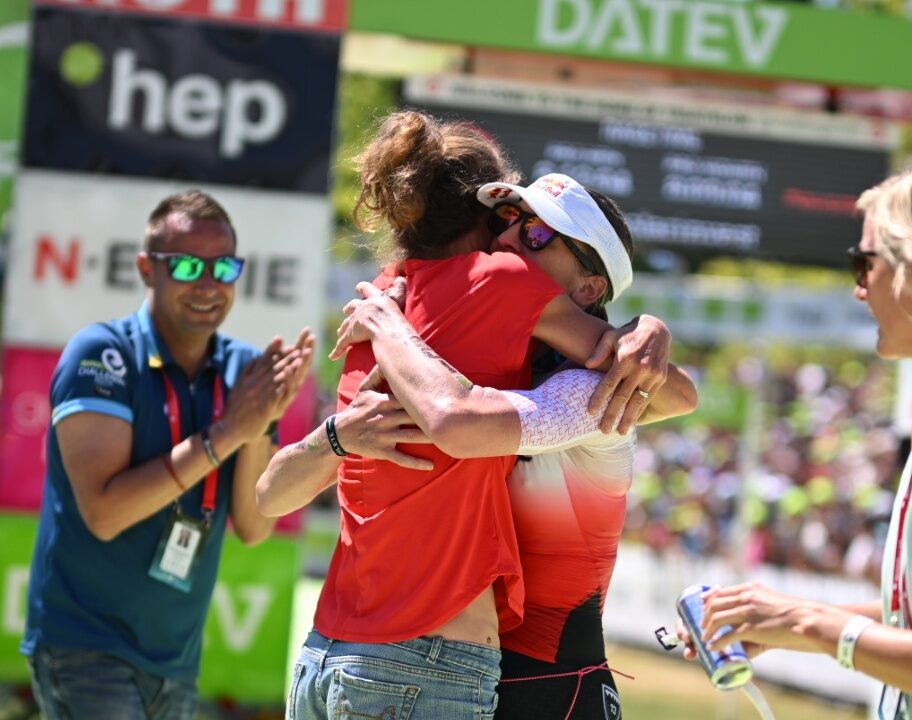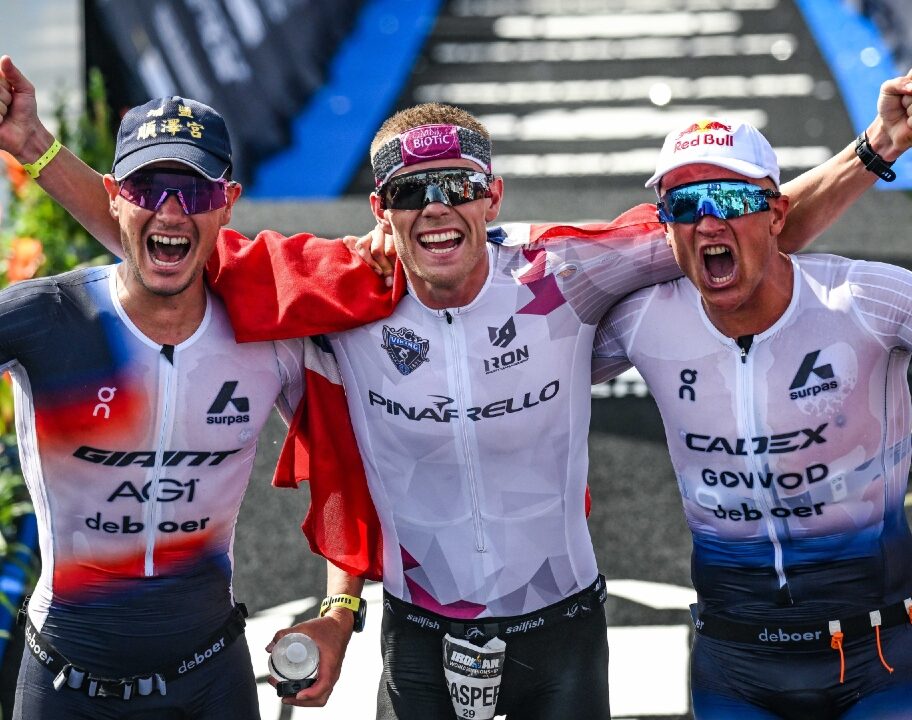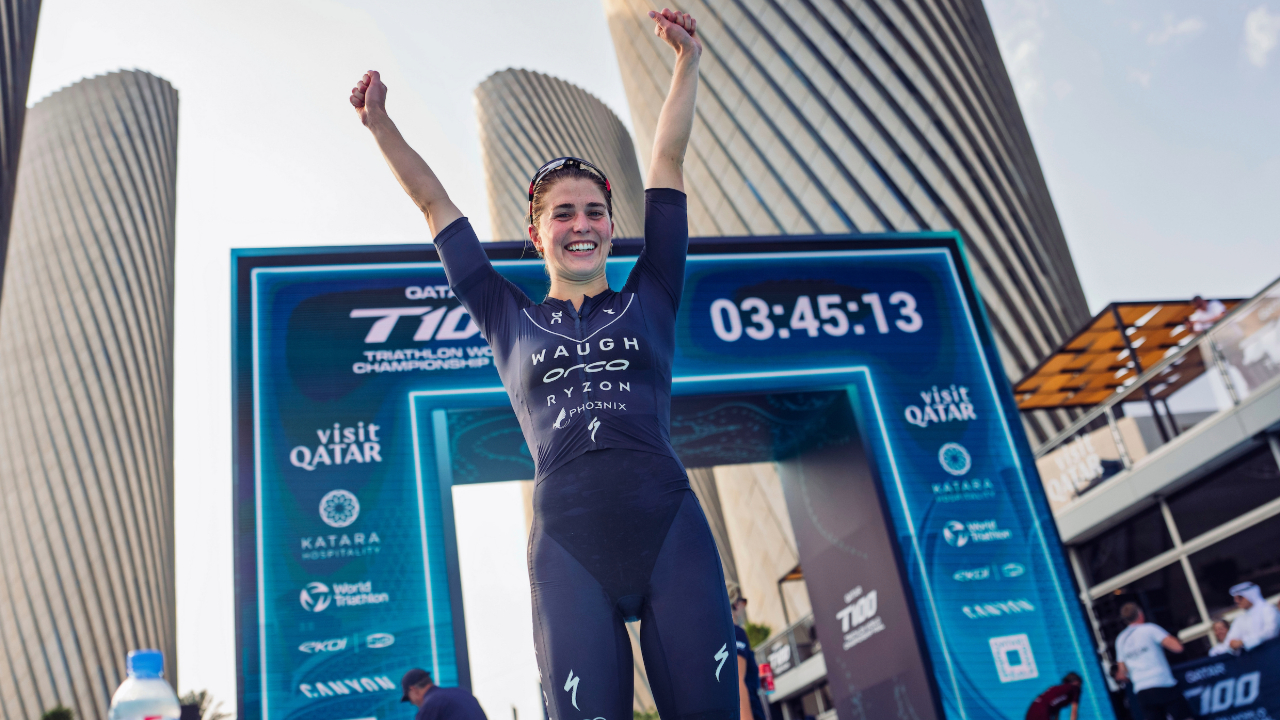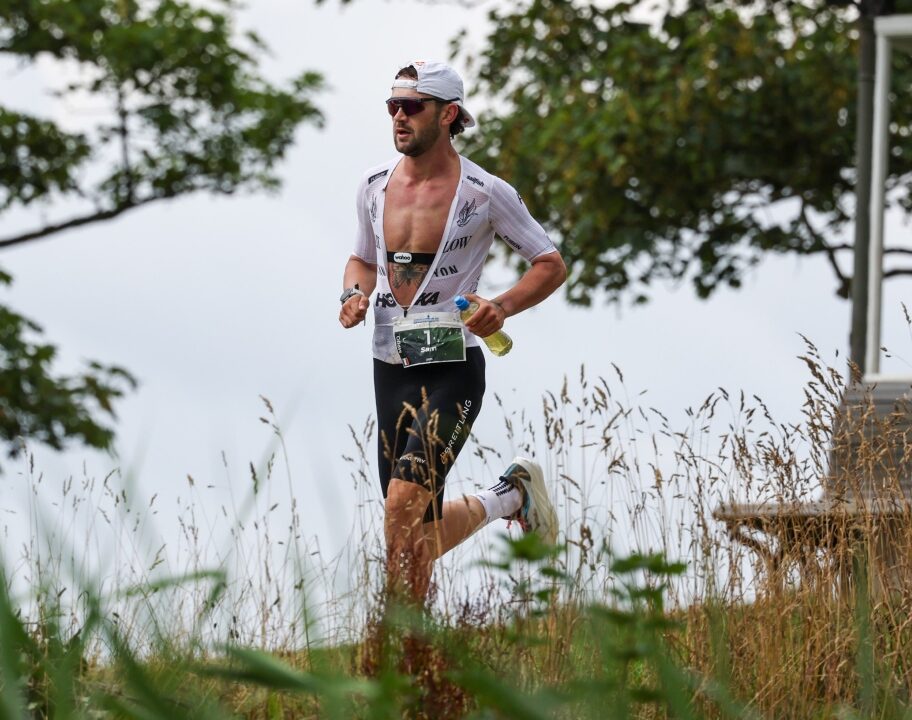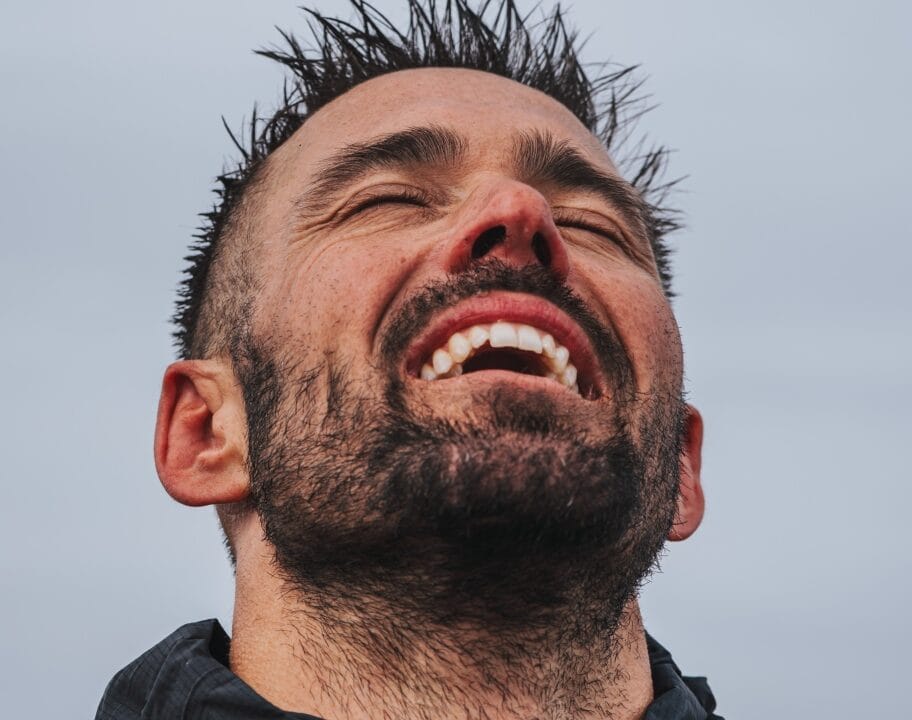As you may well have seen in the wider sporting media, last Thursday saw the official selection of Beth Potter and Alex Yee for the Paris 2024 British Olympic triathlon team, at the Savoy Hotel in central London
Having met the formal automatic qualification requirements outlined by British Triathlon earlier in the year at Paris and Pontevedra, that was effectively a procedural step, as technically, it’s the British Olympic Association providing approval of British Triathlon’s nominations.
Any ‘news’ on Thursday was effectively what wasn’t announced – the confirmation that no further names were awarded (discretionary) selection, in 2023.
I attended the event, and had a chance to speak to British Triathlon’s Performance Director Mike Cavendish, about the road to Paris 2024.
‘They made it easy for us’
Reflecting on the first two names on the team list for 2024, it was another step on the journey to, he’ll be hoping, a fourth consecutive Olympic Games to return triathlon medal success for Team GB.
“As a sport, we generally want to try and select as many athletes as we can, as early as we can.
“As a country I think we are pretty good at peaking for an Olympic Games, and triathlon is a pretty brutal sport and so to peak multiple times in a year is really hard. For these guys in particular [Ed. Beth Potter and Alex Yee], it is a massive step. Beth in particular has taken a huge step forward this year, and both are undoubtedly one or two in the world.
“They made it very easy for us, they did the auto-criteria we needed and so to get two athletes into the team and allow them to just concentrate on preparing, have a good winter and pick the right races next year to peak in July for the Games, is really, really important.”
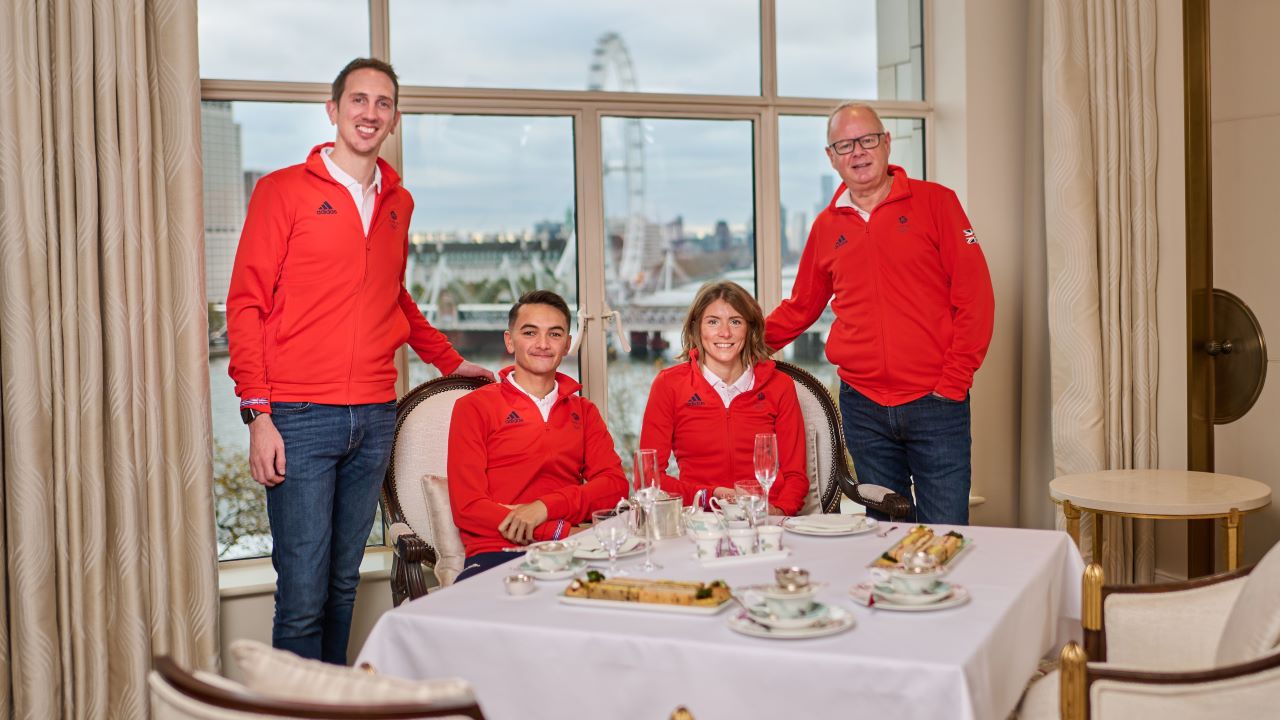
No easy decisions ahead
While Potter and Yee’s selection was straightforward, the minutiae of the selection policy did offer, the possibility at least, of the option to make discretionary selections in 2023. While that route was not taken, it didn’t mean that last month’s initial selection meeting discussions were simple, as Mike explained to me:
“No, they weren’t quick! I’d scheduled in the selection meeting for about two hours and it lasted significantly longer than that. I think that’s part of a legacy that we had with particular challenges around Tokyo. We committed this time around to not filling all of the slots, at this time, if that would have meant leaving a genuine medal contender at home.
“All three of the women that we could have considered – Sophie Coldwell, Georgia Taylor-Brown and Kate Waugh – have all shown that potential. Even Kate, who wouldn’t have been in that bracket at the start of the year but then finished second in the World Championships [Ed. Pontevedra].
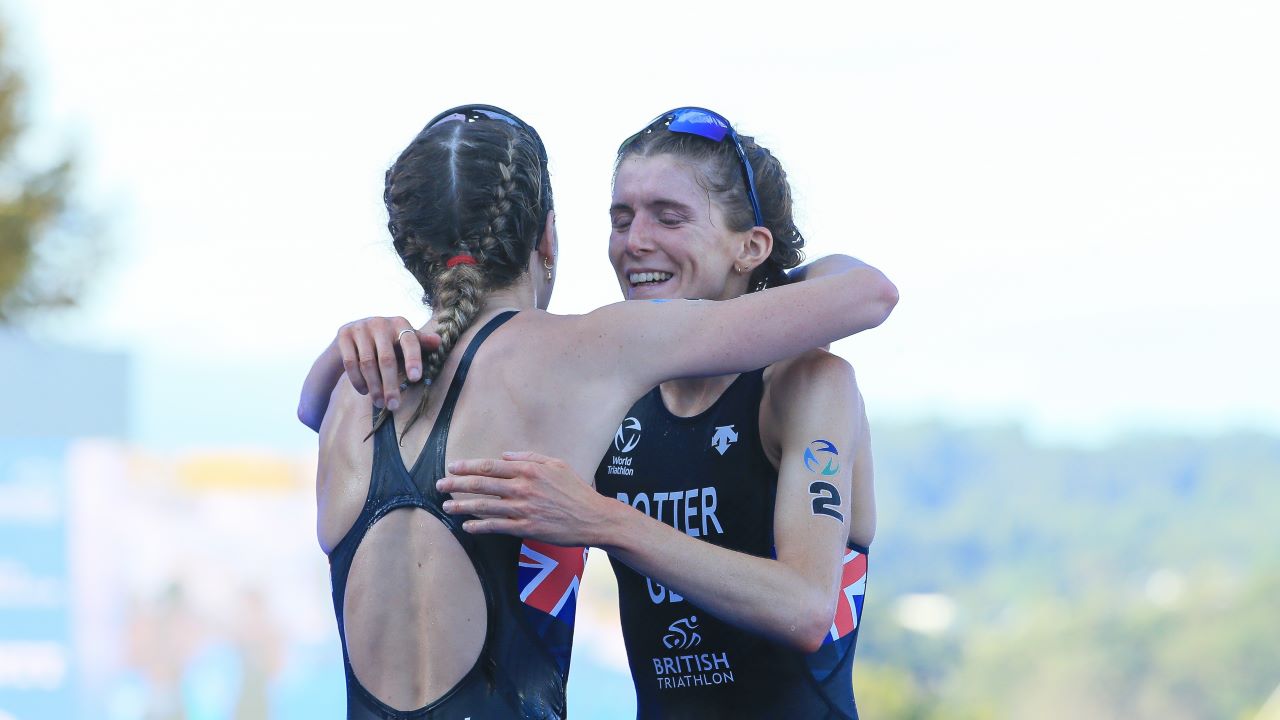
“We could only have filled one additional slot anyway, and we talked about it for a long time, but ultimately we couldn’t see a way to separate them. Every one of those three had a compelling case to be selected, but if we’d selected one over the other, we just didn’t see a way that was appropriate at this point, when we still have more time [Ed. before the selection deadline in 2024].
“Ultimately they will probably all have a compelling case to be selected next year – and when we don’t have any more time, we’ll have to make a selection. Honestly, it keeps me up at night already thinking about which one or two of those we would pick. Not withstanding also that Vicky [Holland] is coming back, Jess [Learmonth] wants to come back and you’ve got Liv Mathias that’s still coming through, so it isn’t just those three.
“But it wasn’t a short conversation – and I imagine it’s going to be another long one next year.”
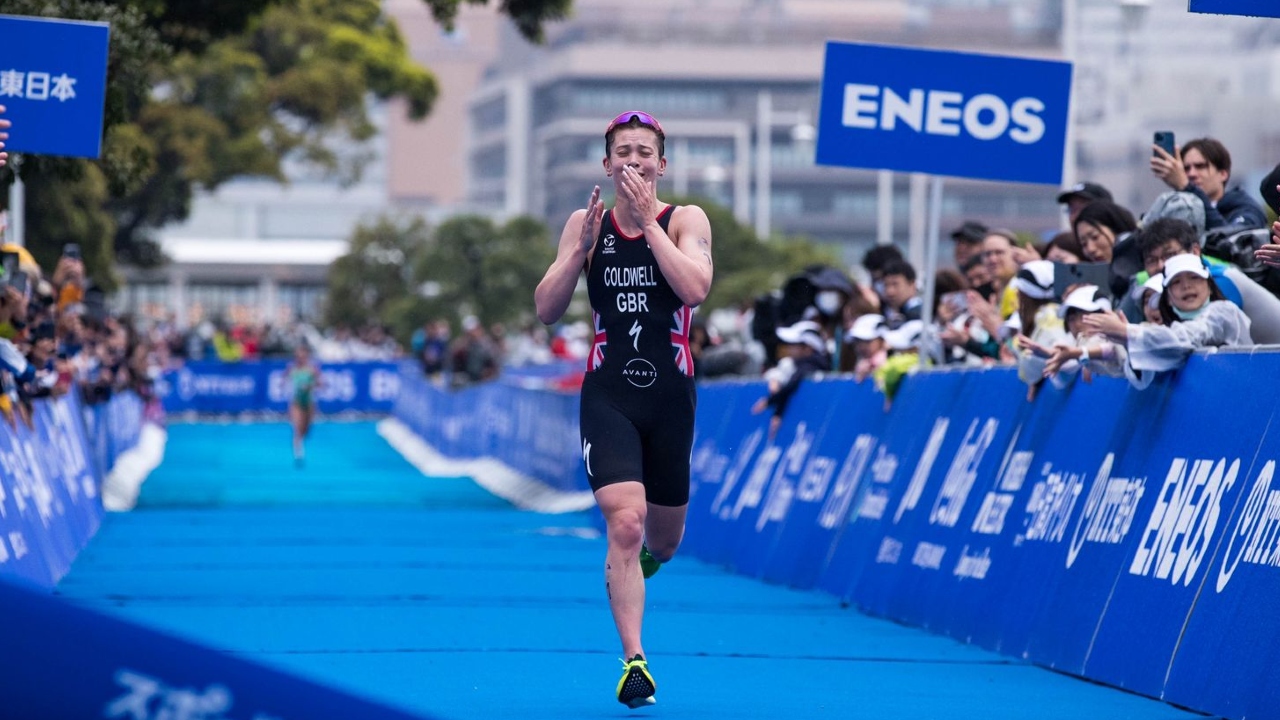
Cagliari is key in 2024
The announcement of the 2024 World Triathlon Series calendar recently was also central in determining the key qualification race for 2024, before the Individual Olympic Qualification Ranking period ends on 27 May 2024. If you want to head to Paris, then you’ll almost certainly want to head to Sardinia in May.
“The qualification period ends at the end of May, and we’ve identified the priority race for individual selection, which is the Cagliari World Series, the last race in the qualification process. We will then pick on a discretionary basis the athletes that have proved to us at that point that they are individual medal contenders – and we’ve still got some of those – then if we have any places left after that, we’ll add in relay specialists or people who will act as a pilot in the individual races.
“Mathematically we are pretty comfortable that we’ve got a third women’s slot guaranteed, but the men’s is in the balance as it was last time, until the end of the qualification period.”
Could it be the strongest British team yet?
“I would be surprised if we are not taking three women who are all very much within a shout of winning a medal. Obviously we’ve got Alex here who’s very clearly that for the men. Jonny [Brownlee] has not had the year he’d have hoped for this year, but he knows how to get it right when it matters, and he’ll absolutely see himself in that boat.
“We’ve also got others coming through, a men’s U23 World Champion, we’ve got Hugo Milner who is on a fast-track and already has a World Cup win, having only entered the sport a couple of years ago.
“I would certainly be disappointed if we are not looking at medals in all three events and then potentially more on top of that, if things go perfectly.”
Force our hand
With such depth in the women’s ranks in particular, while selections in early June will be discretionary, Cavendish and his team have set the scene for an athlete to potentially make selection close to fait accompli in Italy next year:
“Everything from now is discretionary, and we do that because triathlon is such an unpredictable sport, and we’ve seen before circumstances happen in a race that we don’t think will replicate what will happen in Paris, and we don’t want to pick the wrong athletes for the team.
“Cagliari is the priority race, the one that will carry the greatest weight.
What we’ve tried to say the athletes is, if you go to Cagliari, make it impossible for us not to select you.
“So if you go and win there, it’s going to be pretty hard for us to leave you at home. But if we had say three women all inside the top six or seven, and it’s a very close race, then we’d have to look at all of the other factors.”
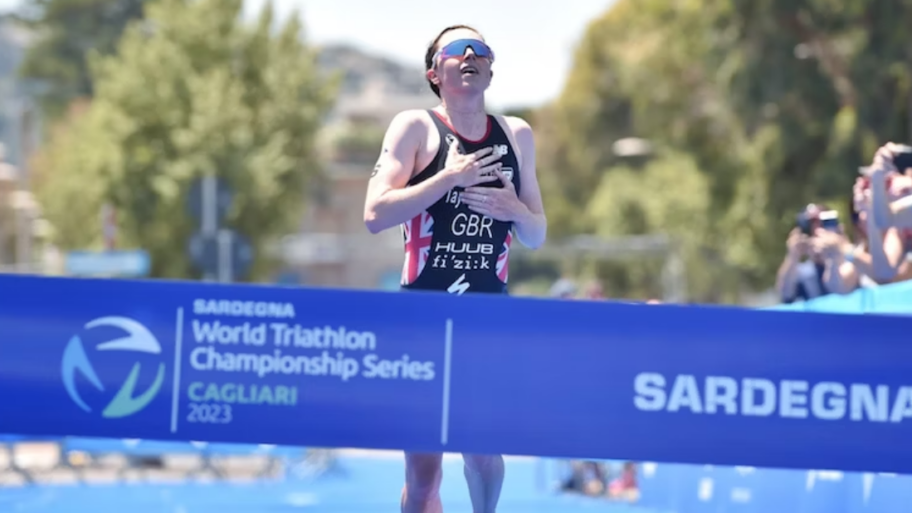
Will three be the magic number?
The strength-in-depth of the British women’s team currently is reflected by four athletes within the Olympic Ranking top-15 at the end of 2023. Any three, within the top-30 at the end of the cycle, ensures three slots for Paris. That’s all but guaranteed.
The situation is very different for the men, however. While Yee sits comfortably at #3, the next best are Barclay Izzard (#44) and Jonny Brownlee (#47). As was the case for Tokyo, that leaves a challenging situation to secure a third slot, a situation that couldn’t be resolved come Games time three years ago. It’s one that Cavendish doesn’t feel is a lost cause… but will be a significant challenge.
“It’s definitely feasible. Our problem – last cycle and this cycle – is keeping our men fit.
“All of the guys that we’ve had/got, this cycle and last – Gordon Benson, Tom Bishop, Sam Dickinson, Ben Dijkstra as examples – it wasn’t that they aren’t good enough. All are / were capable and plenty good enough of being top-30 in the world. The problem has been keeping them healthy enough, for long enough, so that they can do enough races in the period to be consistently ranked top-30.
Albeit, being ranked top-30 in the world is really hard.
“You’ve got to generally be a top 13/14 World Series athlete, a top 5/6 Olympic distance World Cup level athlete and top 3/4 at sprint distance. That is not easy.
“There’s always a balance between getting athletes to pilot for others and giving them a chance in their own right. We’ve probably only got two athletes realistically that can do it now [Ed. earn enough points to finish top-30 in the World Triathlon Individual Olympic Qualification Rankings] – Jonny and Barclay – and if they are both fit and healthy and can do the races that they need to do next year, they will get top-30 in the world, both of them.
“It’s whether we can keep them healthy and then we will have other athletes who will support them in key races next year.”
“I would never count Jonny Brownlee out”
With a complete set of Olympic medals to his name, Jonny Brownlee has the metaphorical t-shirt when it comes to the Olympic Games. Despite that, 34th (Cagliari), 51st (Paris) and 35th (Pontevedra) in his top tier Olympic distance races in 2023 was significantly off the pace for an athlete of his pedigree.
Can he rally, and find the form needed for a fourth Olympic Games appearance? Cavendish is still positive on his prospects – and also his honesty…
“Jonny’s challenge at the moment is that he’s dropped off his rankings a little bit, and so we might not get him into the start of the World Series races. But he knows that, and he’s prepared to go to the World Cups that he potentially needs to do.
“I would never count Jonny Brownlee out. Jonny will be the first to admit that he didn’t have the year that he wanted this year and I think we are all trying to get under the surface of what that means. But you saw in the Super League races towards the end of the season that certainly over the shorter distances, he is absolutely still one of the best in the world on his day.
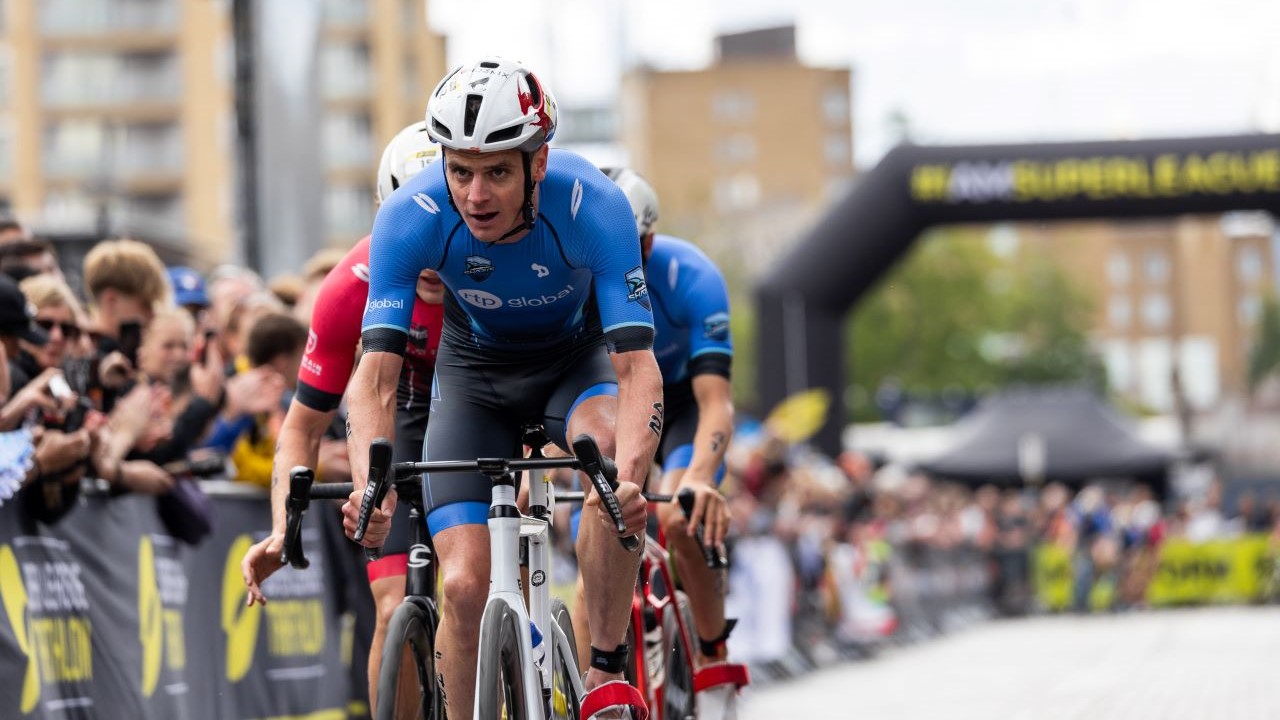
“I think if you were to ask him, he’d say that absolutely he can still do this. He’ll probably say that he can’t do it as many times as he used to be able to – there was a period when he was barely off of a podium in World Series races for about four years – but I would not bet against him on a ‘one day, one race’ basis.
“The great thing with Jonny is that he’ll tell you. If he doesn’t think he can do it, or that he’d do a better job as a pilot and relay specialist, he’ll tell us. We are in a good place that, if he’s fit and healthy and selected, he’ll do a good job. And if he’s not, he’ll be supportive of the others guys coming through that potentially can.”







